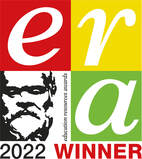ELZ: English
|
Holiday Support
Summer 2019 Extension Year 10 Punctuation Revision Year 10 Punctuation Quiz Year 10 Sentence Length Year 10 Spellings Exam Board Specs Recommended Reading Year 7 Year 8 Year 9+ Revision and Practice |
Years 7-9
“The act of reading…is a powerful predictor of life success by any measure. It is the best predictor of who goes to university regardless of socio-economic background. It is the best predictor of life income, career options, even life partner choices. And neuroscience is proving that reading fiction is one of the most powerful means of developing sympathetic individuals, with better social skills and higher levels of self esteem, resulting in increasing self improvement and positive social behaviours.”
If you are in Years 7-9, your English summer homework is all about reading for pleasure.
Year 10 Your class teachers may have set specific homework for over the break based on the needs of your class. You should, however, also spend some independent study time to do the following in order to take control of your own learning and to get ahead in your studies. Compulsory: When you return to school after the summer break, you will begin to study Shakespeare’s Macbeth for GCSE English Literature. This play was written during the reign of James I, also known as the Jacobean era. Find out as much as you can about this period in history. In particular, you should try to find answers to the following questions and be ready to share your learning in your first English lessons after the break:
Extension: Follow this link to watch a performance of Macbeth at the Globe theatre and make notes on your initial responses to characters and ideas in the play https://www.youtube.com/watch?v=PFwHmgA9nno You may also find it useful to consolidate your revision notes on the poetry you have studied so far, as well as An Inspector Calls and A Christmas Carol. The following website is also really useful: www.senecalearning.com/en-GB/ Year 12 English Language When you return to school following the Summer break, you will begin to learn and about the history of the English Language and how it has changed over time for the second half of the paper on Language Variation. In order to take control of your own learning, you should complete the following tasks and be ready to share your findings in lessons after the holiday:
English Literature You should use the summer break to continue preparing for your coursework. You should read The Great Gatsby and complete the reading and tasks in the preparatory booklet. |


